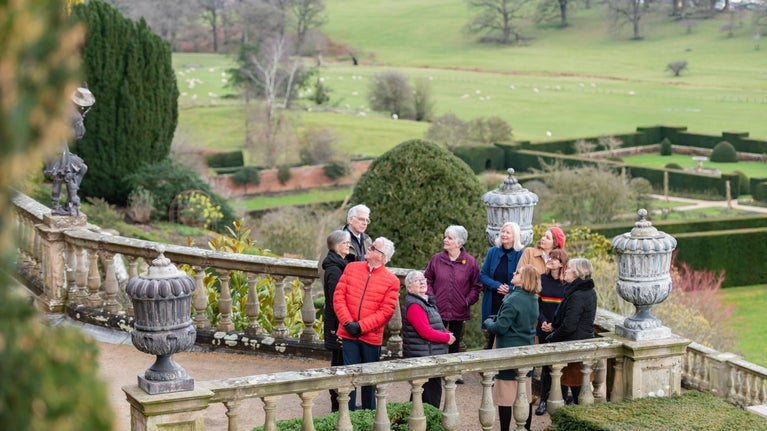
Information on ticks and Lyme disease

Jump to
Lyme disease is a bacterial infection spread to humans by infected ticks – tiny spider-like creatures found in woodland and heath areas. Find out more about how our staff stay informed about Lyme disease and what to do if you experience symptoms.
What are ticks?
Ticks are small spider-like creatures that feed on the blood of birds and mammals, including humans. Ticks that carry the bacteria responsible for Lyme disease are found throughout the UK.
Managing risk at our places
We take all risks seriously at the places we care for, including Lyme disease. Wherever a risk is identified, a risk assessment is performed and a bepoke approach is developed by the on-site team to manage those risks for staff, volunteers and visitors.
Our staff members have access to internal information on Lyme disease which includes guidance from NHS Choices and Public Health England on the prevention and diagnosis of Lyme disease and tick removal.
Information for visitors
Information and guidance for visitors about Lyme disease is available at the places where we’ve identified a material risk, although it will never be clear where someone may have contracted the disease.
Although the chance of being bitten by an infected tick remains low at the majority of our sites, we encourage the sensible prevention of tick bites when engaging in outdoor activities. This includes covering bare skin, wearing light coloured clothing and using tick repellent beforehand, avoiding long grass, carrying out a tick check afterwards and being aware of the signs and symptoms of Lyme disease. Further detailed information can be accessed at Lyme Disease UK.
Anyone who experiences symptoms of the disease is encouraged to seek a medical opinion as soon as possible given the potentially serious long term implications of not receiving suitable treatment.
For more information on Lyme disease, visit NHS Choices and Public Health England websites.

You might also be interested in
Follow the Countryside Code
Help to look after National Trust places by observing a few simple guidelines during your visit and following the Countryside Code.

Badgers and bovine TB
Bovine tuberculosis (bTB) has a devastating impact on livestock farmers. Discover the National Trust's policy of controlling this disease humanely, safeguarding the local wildlife population.

Our views on nature and wildlife
Learn more about our views on protecting and conserving nature and wildlife, our own environmental targets, and our position on issues including trail hunting and shooting.

Visit
Discover somewhere new or visit an old favourite and explore the seasonal gardens, historic castles and outdoor spaces in our care. With over 500 places to discover, where will your adventures take you?
